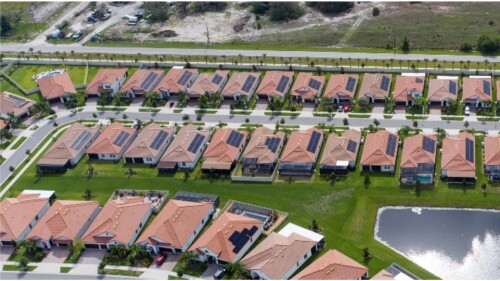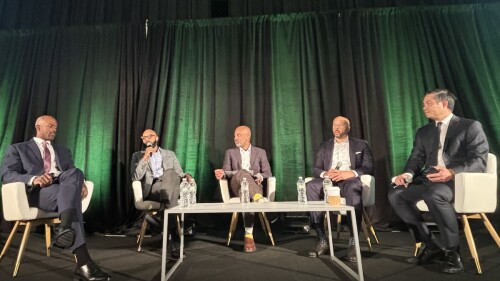Speaking at the 2018 ULI China Mainland Winter Meetingin Shanghai, Steven Zhang, chief economist and head of research at Morgan Stanley Huaxin Securities, outlined an optimistic economic outlook for China and other emerging economies. However, he said the economic and political upheaval that characterized 2018 would continue next year.
Zhang predicted that the U.S. economy would slow in 2019, which could mean the Federal Reserve halting plans for more interest rate increases. “The U.S. economy was stimulated by tax cuts, but the results of the mid-term election mean there is uncertainty over how much further stimulus plans can move forward.”
Recent rises in U.S. interest rates have strengthened the American dollar against emerging markets’ currencies and pulled capital out of emerging-market economies. The Chinese yuan/renminbi has weakened against the dollar this year, and the Shanghai Stock Exchange Composite Index has fallen nearly 20 percent. However, Zhang predicted that with only two interest rate cuts in the first half of next year, the renminbi would stabilize in 2019—possibly even rising against the dollar, and emerging markets would have a chance to recover.
China will have looser economic policies next year, in order to boost growth, said Zhang. “For most of 2018, Chinese monetary policy was too tight,” he said. Gross domestic product (GDP) growth in 2017 was a better-than-expected 6.9 percent in China, which was one of the drivers for the government’s deleveraging policy, designed to reduce debt in the economy. However, the effects of the deleveraging, coupled with the effects of the trade war—which saw the United States and China increase tariffs on each other’s goods—have been negative for the Chinese economy.
In recent months, the People’s Bank of China has begun a new wave of monetary easing, which has released RMB3.4 trillion of liquidity. There also has been a wave of fiscal easing, with local governments issuing new bonds and investing the proceeds into infrastructure development. Zhang said the country will see more capital expenditure on railways, roads, and ports.
So far, real estate has not been a great beneficiary of this new wave of easing and the residential market is “at a plateau,” he said. However, if trade disputes between China and the United States continue next year, further stimulus will come and more of this will be directed toward real estate. “Real estate policy will be focused on cities which have not grown as much as others in recent years,” he said.
The Chinese unemployment rate is still declining, Zhang said, which will boost all real estate sectors. The retail sector suffered in 2018 as consumption growth slowed, and this is likely to continue next year. However, the Chinese government wants to increase consumption and so may cut taxes in order to boost it, he added. The four key areas where policy will encourage growth in consumption and therefore real estate will be education, health care, food and beverage, and hotels, Zhang predicted.
Chinese GDP growth has slowed in recent years but is still predicted to be in excess of 6 percent. A poll of audience members found that most expected GDP growth of 6.5 percent in 2019, although a pessimistic 22 percent expected that growth would fall below 6 percent.
A risk for China’s economy in general and for real estate in particular is the increasing number of nonperforming loans (NPLs). Since the second quarter of this year, NPL rates have begun to rise, Zhang said. “The central government wants to add leverage to the private sector, but the increase of NPLs means banks will be reluctant to lend, especially to small and medium-sized enterprises.”




